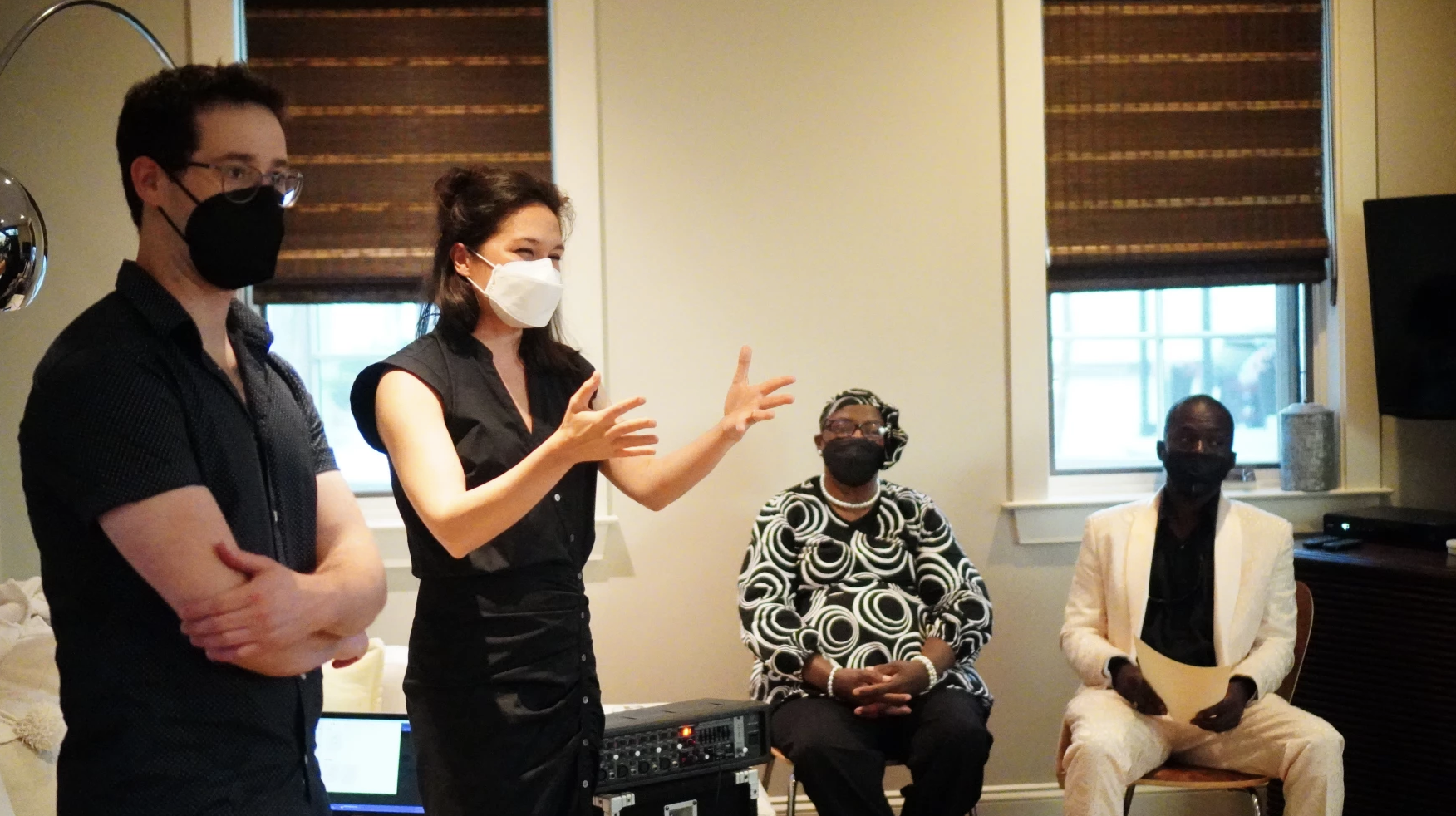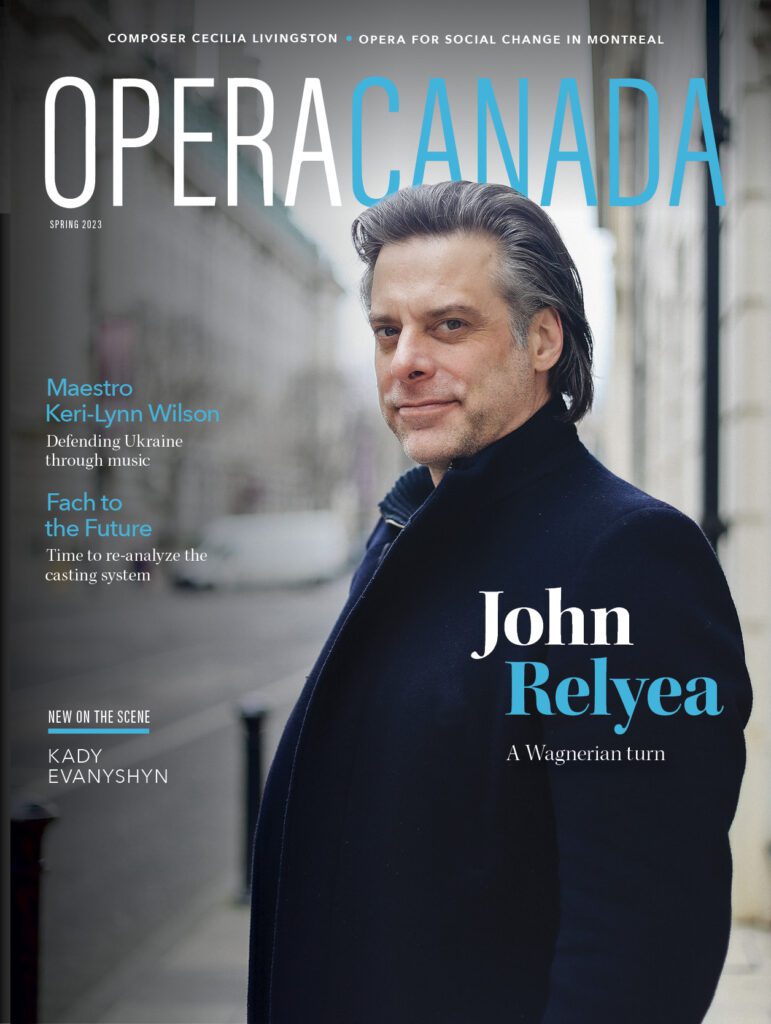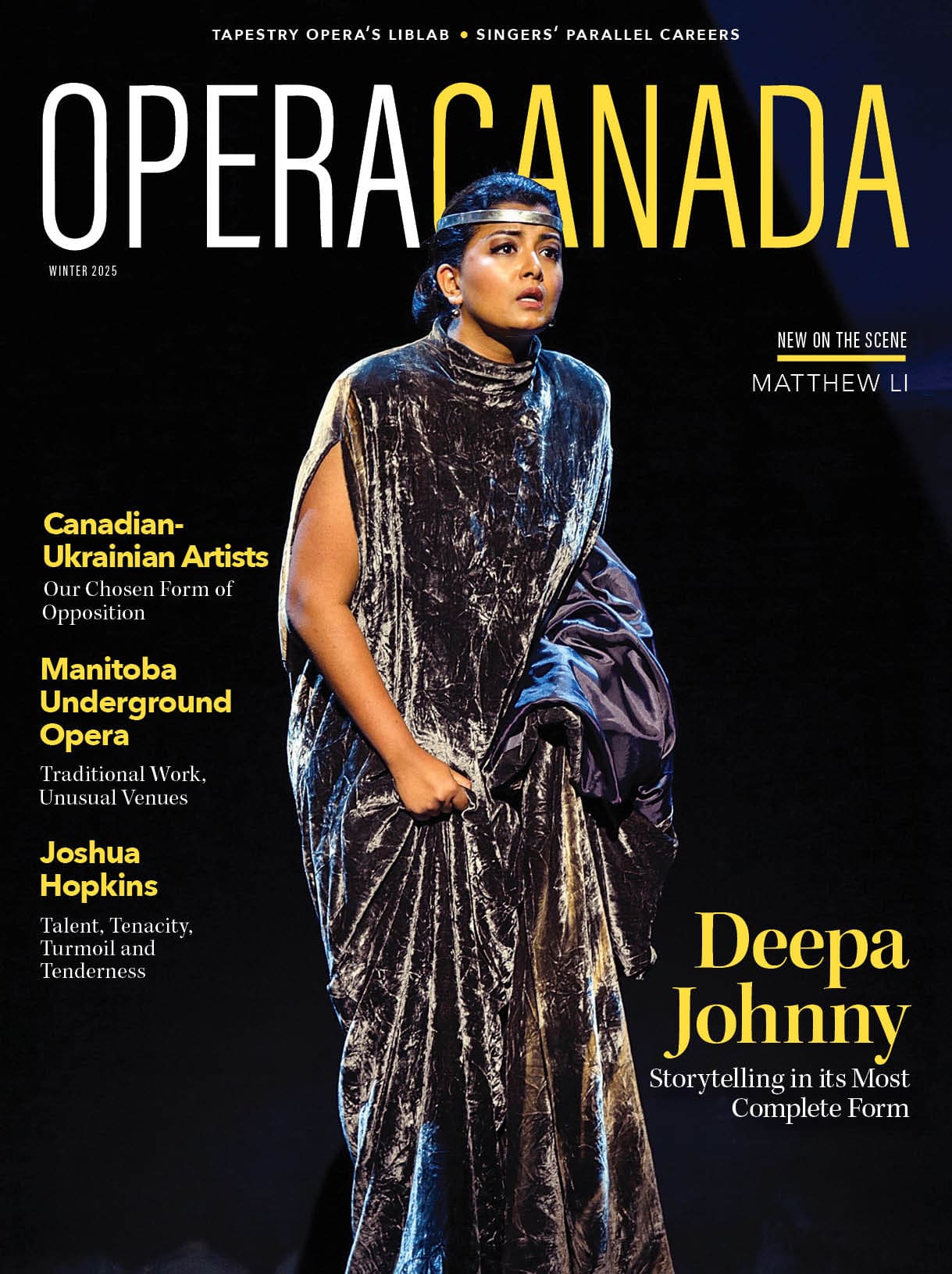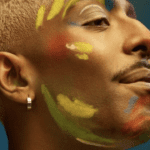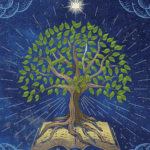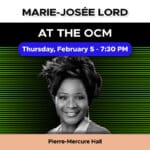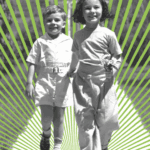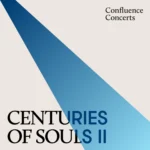SUBSCRIBE TO DIGITAL AND/OR PRINT MAGAZINE
*this text was originally published in the Spring 2023 print version of Opera Canada magazine
Musicians working in the community foster the creation of a healthier society when community members engage with those musicians and the resulting music they create.
As the COVID-19 pandemic brought mental health to the front page of every newspaper in the world, music psychotherapist and pianist SarahRose Black —also, Editor-In-Chief of Canadian Journal of Music Therapy—and her husband, cellist Andrew Ascenzo, realized there was an opportunity to create more awareness around the potential impact of music within communities. Through reflection, they thought, “why not bring information about the tangible ways music impacts us to accessible public spaces?” Their series—Pulse Music Media—brings real-life accounts of how music changes physical, cognitive, and mental health to high schools, libraries, arts organizations, and medical professionals. By making information about the health benefits of music accessible, and by offering people a space to listen to music differently, they found themselves able to “shine a different light on music and show that it is a resource to create healthier communities”.
It is well documented that empowering people to actively engage with music they love in new ways brings these music-lovers a host of meaningful benefits in terms of mental health. Music activates a circuit in the brain that promotes understanding of what others may be thinking and feeling. Allowing community members to share their music—the music they listen to, the music they sing to themselves, the music they grew up listening to with their parents—with others makes them feel heard and feel important. It makes them feel like they deserved to be listened to. It also makes them feel more connected to the people close to them.
Music gives community members tangible tools they can use to work through specific challenges they may be facing. I had the opportunity to see such a transformation first-hand through the Tell Your Story project; a community engagement project I co-founded in 2022 at Spoleto Festival USA in Charleston, South Carolina. Musicians were paired with residents of the Sea Islands, listening to and recording their life stories. Each musician/resident pair worked together to create a sonic memoir combining the resident’s voice and music, along with sounds important to the resident’s history in South Carolina—a history that is at a heightened risk of erasure.
One resident shared with me that the act of sharing her story through music increased her own feelings of self-worth, and gave her the opportunity to process the sadness and grief that she finds difficult to talk about in other contexts. She said that it was a great relief that her family’s history and hopes and dreams wouldn’t die with her, that others could listen to her life story—and that it could potentially help others through challenging times. Sharing her story and her music empowered this South Carolinian with a deep sense of purpose, and the sonic memoir became an offering to future generations.
Yet what is less well known is the incredible effect such musical interactions have on the mental health of musicians themselves. Musicians contend with mental health struggles at rates that are much higher than members of other professions. A 2016 study by the University of Westminster and MusicTank showed that musicians are three times more susceptible to depression than the average person. While musicians tend to blame stress and the challenges of a musician’s lifestyle, a significant part of what musicians struggle with is actually internalizing their value and their potential. External cues range from shrinking national arts budgets to arts organizations cutting jobs and performances, and internal cues stem from years of self-critique. These cues make it difficult to comprehend the range of skills and abilities we’ve developed over years of focused study.
What musicians can do for other people—by supporting them through their music and by offering new musical experiences— helps musicians feel their own value. It makes musicians aware that they have strengths and resources that can deeply affect people. By building awareness of these skills and learning how to apply them, musicians can have an impact on people close to them and also on people they’ll meet for just a short amount of time.
On a basic level, musicians can experience profound joy by working directly with people to create musical experiences in a way that they can’t feel by performing in front of a faceless audience. Scientists have linked joy to the ability and ease with which we develop relationships of all types—short or long-term. This feeling of connection inspires us to continue developing relationships throughout our lives, and its downstream health benefits are manifold. Research shows that the benefits of positive relationships are linked to lower rates of anxiety and depression, higher self-esteem, and even stronger immune systems. Musicians have the unique ability to form such relationships through making, receiving, sharing, and creating music.

Developing creative ways to make music more accessible also offers musicians the capability to be more expressive and varied in their own work. By seeing how people react and respond to music, artists learn to understand what actually moves people. These authentic reactions, and the bonds they build, help musicians better understand why they’re making music in the first place, and what they are trying to achieve by doing so.
Working with non-musicians also teaches musicians to be artists without their instrument. When working with community members, musicians by necessity have to engage with different music genres and types, and learn ways of interacting with music beyond doing the one musical action they’ve been training their whole life to do. At the Nordoff-Robbins Center for Music Therapy in New York, I regularly play anywhere from five to ten instruments per session, depending on what my clients are drawn to and request at that moment. This experience has taught me just how easily and richly my expertise in one instrument can be transferred to provide musical expression on an instrument I may have never played before. By using the listening skills I’ve developed over a lifetime of study—really feeling and amplifying the musicality of the person in front of me—the session istransformative for both myself and my client.
My experience is not unique. As a young, conservatory-trained classical pianist, SarahRose Black says that she was initially resistant to the idea of music as a therapeutic tool. However, she noticed quickly that her students of all ages would come into their lessons with the whole day on their shoulders. Intense feelings and emotions would come out in their behaviors. She understood that, whether she liked it or not, the lesson was more than the exchange of musical information. At the same time, her experiences as a performer were making her question whether she was using music as a mode of connection in the most effective way possible. SarahRose went on to receive her Ph.D. in Music and Health from the University of Toronto, and is now a music therapist and registered psychotherapist at Princess Margaret Cancer Centre and Kensington Health in Toronto.
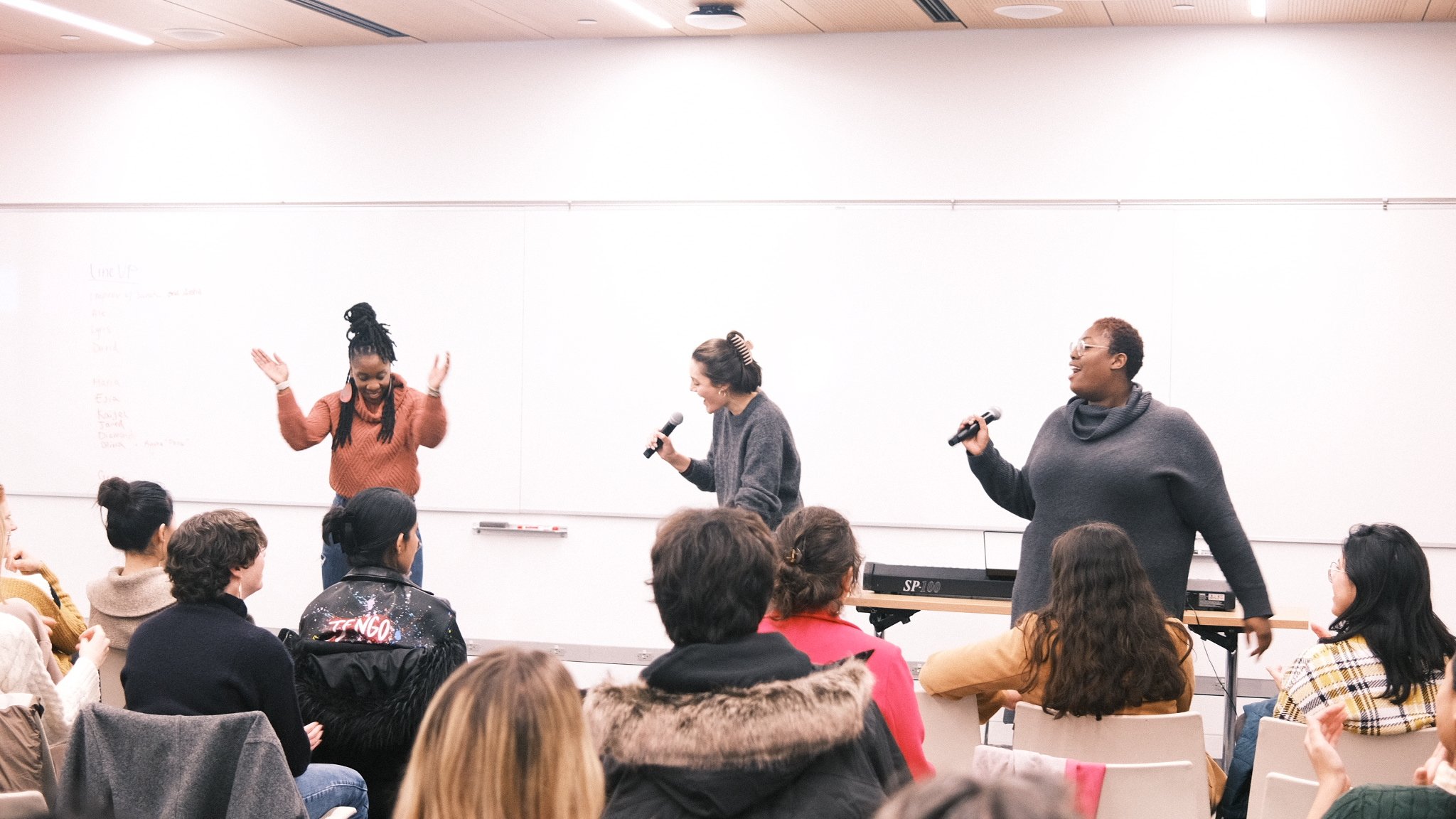
Olivia Cosío leading an improv workshop Ⓒ Courtesy of Olivia Cosío
Through learning new skills and focusing on how her musicianship can affect change within her community, American mezzo soprano Olivia Cosío is experiencing a similar shift towards a healthier relationship with herself and with music. After training as an opera singer at some of the top conservatories in the United States, Olivia was offered an ensemble position at an opera house in Austria. It was the first time in her life that she worked solely as a performer, and she quickly realized that something was missing: she felt confused about her purpose as an artist. “When you’re performing, you know you may be having an impact on people. But you can’t really understand the impact from afar.” As she described it, “so much of the feedback we think we’re getting is actually a projection”, since performers, “aren’t making ourselves vulnerable to witnessing a full, nuanced response.”
It is no secret that opera singers take extraordinary measures to preserve their physical health—think humidifiers and ubiquitous hand sanitizer dispensers in every rehearsal room. Olivia continues: “what’s less discussed is the measures we take or don’t take to preserve our mental health.” Because classical singers are not in the position to make decisions very often, Olivia believes that the constant judgement singers are subjected to is exponentially detrimental to self-perception.
Olivia is now finishing her M.Ed. degree in Education Leadership at Harvard University, where she’s also the Director of First-Year Arts Initiatives. For her, working one-on-one within creative projects or classroom settings enables her to see the impact of sound and music much more closely. “It makes me feel more purposeful and more useful than simply performing.” Meanwhile, learning new skills has given her the confidence “to know that I’m not reliant on performing to make artistic contributions to my community.” Finally, building close relationships with those people she’s making music with also helps her remember “that I’m a person first and a singer second”.
Musicians can become more aware of the impact of music on their psychological, socio-emotional, and physiological wellbeing—and they don’t have to abandon their performing careers to do so. Berklee School of Music, under the leadership of Joy Allen, is creating the Community Health Musician certificate. Taught by experts in music psychotherapy and the medical field, this one-year program includes coursework that explores how music can improve well-being at all ages, as well as classes on the psychology of music, ethical considerations in community work, and a practicum component where participants create partnerships in their communities and execute a project combining music and health.
There are also a number of open access research collections and institutes where musicians can find more information about best practices and current research, along with tools and techniques for working outside the performance hall. Berklee Music and Health Institute, Johns Hopkins Center for Music and Medicine, Eastman Performing Arts Medicine, and the National Association of Music Merchants all have resources for those who would like to learn more, develop tools, and find avenues to become community musicians.
And finally, there are no limits to musicians using and applying their own creativity. Whether it’s engaging with a friend going through a difficult time or a community organization in your town, you can go out explore your musicality while listening and receiving the music of those across from you. As an experience, for them and for you, it will be transformative — I have no doubt.
Musicians today have the opportunity to do more than voice their instrument for an audience they may never meet. They can and should augment those skills to improve mental health and well-being in their communities. Not only will this benefit those who are not professional musicians, but it will support musicians’ health and enable a greater sense of sustainability in what is an ever-challenging lifestyle.

